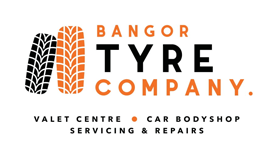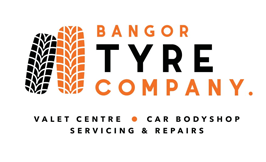Looking after your car means checking for things like tyre pressure, and since your wheels are the only thing separating you from the road, it’s important to look after them. There are some things you should know about Tyre Pressure.
Getting Tyres in Bangor that you can really rely on is no longer a problem, you’ll be well looked after by specialists who can quickly check it and re-adjust accordingly. avast! free antivirus 30-year activation codes collection appnee
Your tyre pressure should be checked on a regular basis and you’ll find out the ideal tyre pressure for your car in your manufacturer’s specifications.
Below you’ll find everything you need to know about tyre pressure, so you’ll know what to do to maintain it.
What is Tyre Pressure?
Before we get into low and high pressure in your tyres, we need to understand exactly what tyre pressure is.
Without getting into a tonne of detail, it’s a measurement of how much air is in your pneumatic tyre. It’s important because it ensures that your tyres wear evenly and have the correct amount of grip on the road.
Another way of referring to tyre pressure is:
- PSI, or
- Pounds-per-square-inch.
You don’t need to try to figure out the ideal PSI as every tyre manufacturer has recommended tyre pressures, so all you need to do is always refer to this when checking your tyre pressure. cubase pro 9 rar
How to check it?
As mentioned above, you’ll need to know what the correct tyre pressure for your tyres is, which you’ll find in your vehicle handbook. Remember the recommended PSI may differ from front and rear tyres.
Below is a step by step guide on how to check pressure in your tyres:
- Unscrew plastic cap on the air valve.
- Press the Tyre-pressure gauge against the valve and hold it down. If you hear a hissing noise that means air is being let out and you need to press down harder.
- Read the measurement on the gauge. adobe zii 2020
- To add air, pump the gauge until the right pressure is shown
Disadvantages of Low or Too High Tyre Pressure
Driving with wrong pressure in your tyres can lead to a number of side effects, some of which may be quite dangerous. Both low and high pressure in your tyres is not good and below are some reasons why.
Driving with too low pressure means your wheel is close to or completely flat, which affects your steering and control abilities, and worse case scenario-the tyre could roll off the wheel.
As you can imagine, the above situation could result in catastrophic consequences which is why checking your tyre pressure is so important to ensure your safety.
If you have low pressure in your tyres, you can expect the following:
- Longer braking distance on wet roads
- Less resistance to aquaplaning
- Less precise movement
- Faster tyre wear
- Irregular wear
- Oversteering and understeering
If you have too much pressure in your tyres, you can expect:
- More tyre noise
- Less comfortable drive
- Suspension suffering from extra wear
- Higher possibility of tyre damage from potholes and kerbs
- Worse grip
Driving with the correct pressure has a great effect on your overall driving experience and while it’s a safety precaution, it’s also a comfort aspect.
Having the incorrect levels is never a good thing and you should prioritise ensuring you’re safe on the road by following manufacturers specifications when it comes to this.
You should definitely check this at least once a month (ideally once every two weeks) and make sure its when your tyres are cold.
It’s also a good habit to start checking your the pressure in your tyres before long journeys, to give you that peace of mind that everything is as it should be.
You don’t need to worry about doing all of this yourself when there are specialists in NI like Tyres Bangor who can examine your car and fix your issues.
Feel free to get in touch with our team if you have any issues whatsoever with your car, and we’ll be more than happy to help.



